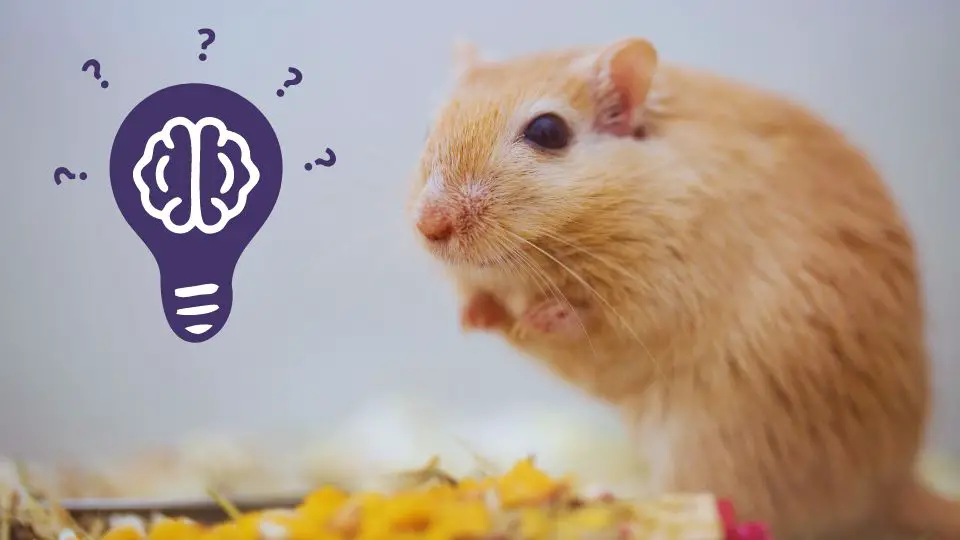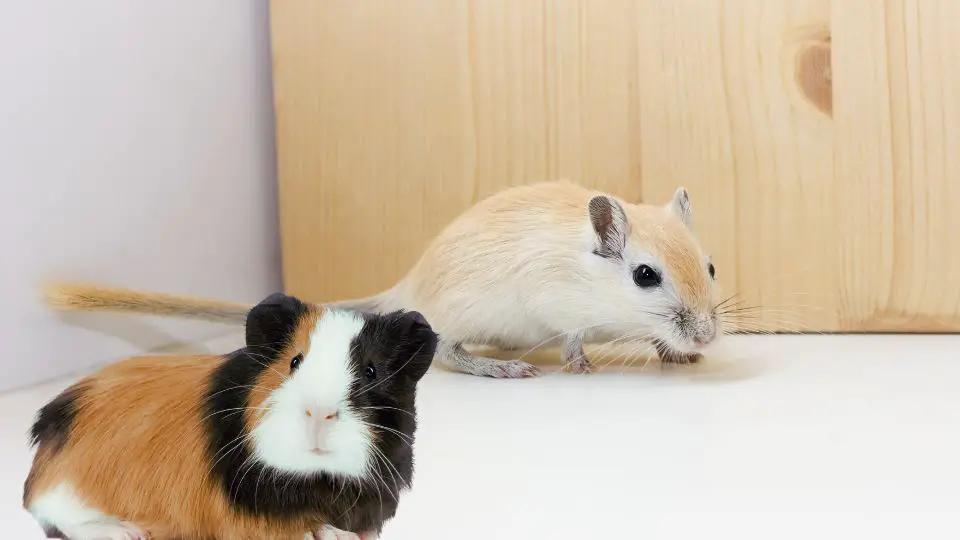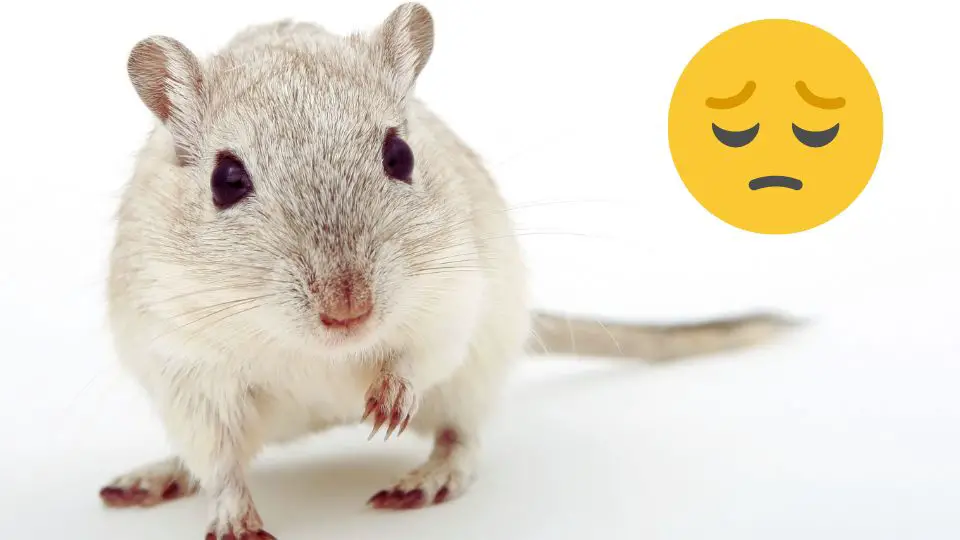Gerbils are fascinating creatures with their own set of cognitive abilities. One question that often arises is whether gerbils have memory.
Yes, gerbils have memory. They possess the ability to retain and recall information about their environment, social interactions, and learned behaviors. Their memory capabilities include both short-term and long-term memory, allowing them to navigate their surroundings, recognize familiar individuals, and remember important information for their survival and well-being.
In this article, we will delve into the intriguing world of gerbil memory, exploring their capacity to retain and recall information.
Do Gerbils Remember Things?
Yes, gerbils have the ability to remember things. They possess memory capabilities that allow them to retain and recall information about their environment, experiences, and social interactions. Gerbils are known to remember various aspects, including:
- Spatial Information: Gerbils have a remarkable spatial memory, which enables them to remember the layout of their surroundings, the location of their burrows, and the routes they navigate through complex tunnels.
- Resource Locations: Gerbils can remember the locations of food and water sources in their habitat. They learn and recall the positions of these resources, allowing them to efficiently find them when needed.
- Social Partners: Gerbils are social animals and can remember their familiar cage mates or social partners. They recognize and remember individuals, exhibiting social memory over extended periods.
- Learned Behaviors: Gerbils can remember and learn specific behaviors or tasks through training or repeated experiences. For example, they can learn to navigate mazes, discriminate between objects, and associate certain cues with rewards.
- Caching Behavior: Gerbils exhibit caching behavior where they store food in various locations for later consumption. This behavior demonstrates their ability to remember the locations of their cached food.
While gerbils’ memory may not be as extensive as that of some other animals, they do have the capacity to remember and retain information important for their survival and social interactions. Memory abilities vary among individual gerbils, and the strength and duration of their memory can be influenced by factors such as age, environmental conditions, and stress levels.
Short-Term Memory in Gerbils
When it comes to memory, many wonder about the cognitive abilities of gerbils. Do they possess short-term memory, the kind of memory that allows us to hold information temporarily and use it for immediate tasks?
Short-term memory refers to the ability to retain and recall information for a brief period, typically ranging from seconds to minutes. It plays a crucial role in daily activities, allowing organisms to remember and process information in real-time. Research conducted on gerbils suggests that they indeed possess short-term memory capabilities.
Gerbils have shown the ability to remember the locations of resources, such as food or water sources, in their environment. They can learn and remember the spatial arrangement of these resources, allowing them to navigate and find them efficiently.
Gerbils also exhibit behaviors that suggest short-term memory. For example, when they encounter novel objects or changes in their environment, they display exploration and investigatory behaviors. These behaviors indicate that gerbils can recognize and remember the novelty or changes, providing evidence of their short-term memory capacity.
While the precise mechanisms underlying gerbil short-term memory are not fully understood, the existing research strongly suggests that they possess this cognitive ability. Their capacity to navigate mazes, discriminate between objects, remember resource locations, and respond to changes in their environment all point to the presence of short-term memory.
Long-Term Memory in Gerbils
Long-term memory is a fascinating aspect of cognition that allows organisms to retain and recall information over extended periods, ranging from hours to years. But what about gerbils? Do these small, intelligent rodents possess long-term memory capabilities?
Long-term memory refers to the ability to store and retrieve information over a prolonged period, allowing organisms to retain knowledge and experiences. Research conducted on gerbils has shed light on their capacity for long-term memory.
Various studies have been conducted to investigate gerbils’ long-term memory abilities, employing experimental tasks and observations to assess their retention capabilities. For instance, in a study focusing on spatial memory, gerbils were trained to find hidden food rewards in specific locations within a maze.
Over time, it was observed that gerbils could remember the spatial cues associated with the food rewards and successfully navigate the maze to find them. This indicated their ability to retain and recall spatial information over an extended period, suggesting the presence of long-term memory.
In addition to experimental tasks, long-term memory in gerbils is also evident through their behaviors. For example, gerbils exhibit a natural caching behavior where they store food in various locations for later consumption. This caching behavior suggests the use of long-term memory to remember the food locations and retrieve them when needed.
Spatial Memory in Gerbils
Spatial memory refers to the ability to remember and recall information about the spatial layout of one’s surroundings. It allows organisms to create cognitive maps, store information about landmarks, and remember routes or paths to specific locations. Research conducted on gerbils has shed light on their spatial memory capabilities.
Gerbils also exhibit remarkable homing abilities, displaying the capacity to remember the location of their burrows in complex underground tunnel systems. They navigate through intricate networks, remembering the routes and accurately returning to their nests.
Furthermore, gerbils have been observed to use visual cues and landmarks to orient themselves in their environment. They rely on these spatial references to remember locations and successfully navigate through their surroundings.
These examples of spatial memory tasks and behaviors observed in gerbils provide strong evidence for their spatial memory capabilities. The ability to navigate mazes, remember resource locations, adapt to changes in the environment, and rely on visual cues highlight their remarkable spatial memory skills.
Factors Influencing Gerbil Memory
Memory is a complex cognitive function that can be influenced by various factors, and gerbils are no exception. Understanding the factors that can impact gerbil memory is essential to gain insights into their cognitive abilities and the conditions under which their memory performance may vary.
Age
Age is a significant factor that can affect gerbil memory. Young gerbils may have less developed memory abilities compared to adults. As gerbils mature and gain more experiences, their memory performance can improve. However, as gerbils reach older age, memory decline may occur, similar to what is observed in other animals and humans.
Stress
Stress can have a profound impact on memory performance in gerbils. Excessive or chronic stress can impair memory consolidation and retrieval processes. When gerbils experience high levels of stress, their ability to form new memories or recall existing ones may be compromised. It is crucial to provide a calm and stress-free environment for gerbils to optimize their memory function.
Environmental Conditions
The environmental conditions in which gerbils live can also influence their memory performance. Enriched and stimulating environments that provide opportunities for exploration and mental stimulation have been shown to enhance memory capabilities in gerbils. On the other hand, monotonous or impoverished environments with limited sensory and cognitive stimulation may negatively impact their memory.
Diet and Nutrition
Diet and nutrition play a role in gerbil memory as well. A balanced and nutritious diet that meets their specific dietary requirements can support optimal brain function and memory performance. Nutritional deficiencies or imbalances may adversely affect memory abilities.
Sleep and Rest
Sufficient sleep and rest are vital for memory consolidation. During sleep, memories are processed and consolidated, leading to better retention and recall. Disruptions in sleep patterns or inadequate rest can interfere with memory consolidation processes in gerbils.
FAQ
Do gerbils miss their owners?
Gerbils can form strong bonds with their owners and show signs of attachment. While they may not experience emotions in the same way humans do, gerbils can recognize and respond to their owners’ presence. They may display behaviors indicating they are familiar and comfortable with their owners, such as approaching them, seeking interaction, or showing signs of excitement.
Do gerbils have feelings?
Gerbils have their own unique set of emotions, although they may differ from human emotions. They can experience basic emotions like curiosity, contentment, fear, and anxiety. Their behaviors and responses can reflect their emotional states. It is important to provide them with a safe, stimulating, and nurturing environment to promote their emotional well-being.
Do gerbils remember you?
Gerbils have the ability to remember people and recognize familiar faces. They can remember their owners through visual and olfactory cues. Regular interaction, positive experiences, and gentle handling can contribute to their memory of their owners. Building a bond with your gerbil through consistent care and positive interactions can enhance their recognition and familiarity with you.
Do gerbils know their name?
While gerbils may not understand names in the same way humans do, they can learn to associate certain sounds or vocal cues with positive experiences, including attention, interaction, or treats. By consistently using their name during positive interactions and associating it with rewards, gerbils can learn to recognize and respond to their name being called.
Conclusion
In conclusion, gerbils possess memory capabilities that allow them to retain and recall information relevant to their survival, social interactions, and environment. Through scientific research and observations, it has been shown that gerbils exhibit both short-term and long-term memory abilities. They can remember spatial information, recognize familiar individuals, retain learned behaviors, and display other memory-related behaviors.
However, it’s important to note that gerbils’ memory may not be as extensive or complex as that of some other animals. The strength and duration of their memory can be influenced by factors such as age, stress levels, and environmental conditions. Additionally, individual gerbils may vary in their memory performance.







